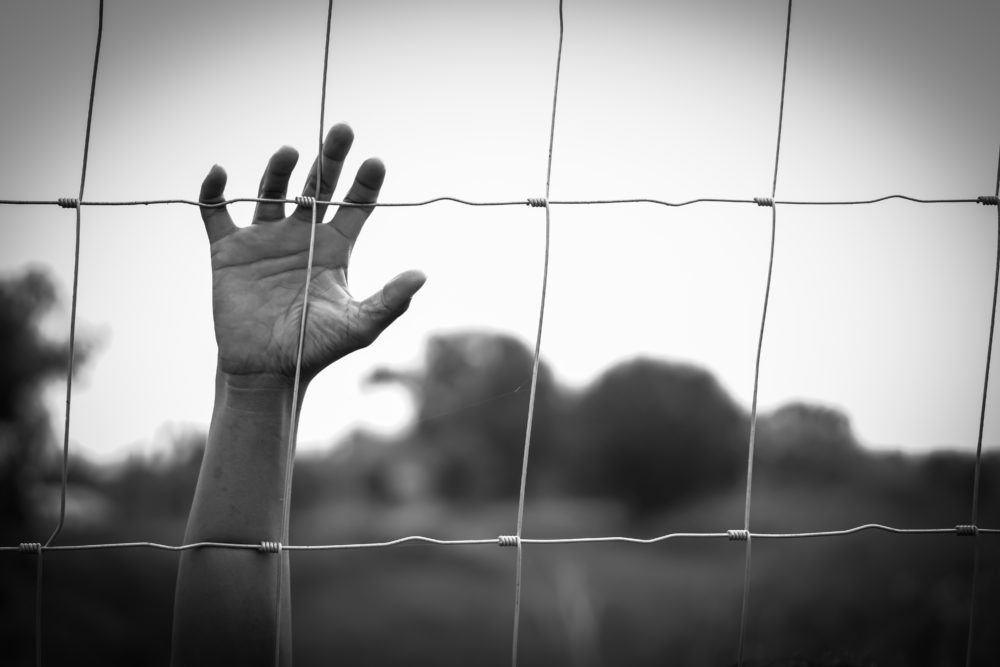We happen to live in the Michigan county where Ethan Crumbley, 15, shot and killed four students and wounded seven others at Oxford High School last November, using a gun owned by his parents, who also were charged and arrested in this case.
We know people who were in the school that day. We have lived with the horror. We have witnessed the untold grief and sorrow of the relatives and friends whose loved ones were victims of that shooting.
We decry the paralysis of state and federal legislators to prevent such awful tragedies, which are happening far too often in America.
Our recently published book, “Sentencing Youth to Life in Prison: Justice Denied,” doesn’t grapple with that paralysis. It does tackle this nation’s failure to fully abide by two U.S. Supreme Court rulings aimed at ensuring that lower courts treat youth — no matter how heinous their crimes — as children. They are not adults. We should not assume that each and every, single one of them is beyond redemption.
Many prosecutors, judges and even juries have great difficulty facing those facts. Those are some of the findings and arguments in our book, which partly is based on interviews with incarcerated individuals who were sentenced as juveniles to life without parole; former juvenile lifers; and five prosecuting attorneys in Michigan.
Juveniles who either committed a murder or were involved in a violent crime often evolve into mature, productive people, capable of returning to society as healthy, good citizens. For instance, native Philadelphian John Pace, now in his 50s, was sentenced to prison at 17 for killing a man during a robbery. Six years into that sentence he began taking classes that led to his bachelor’s degree. Released from prison in 2017, after the U.S. Supreme Court in 2016 outlawed mandatory sentences of life with the possibility of parole for juvenile offenders, he is a justice-reform activist, reentry coordinator and co-founder of Life after Life.
Sentenced to 25 to 37 years for killing his mother in 2005, when he was 15, Michiganian Chris Dankovich, at 18, enrolled in a prison creative writing class that the University of Michigan offered. His trenchant essays about criminal justice and sentencing have appeared in, among other publications, The Marshall Project and Vice.
Often, prosecutors and judges only look at the violence, severity and destructiveness of the crime and pay little attention to the possibility that the young person will change.
But the U.S. Supreme Court’s Miller v. Alabama ruling in 2012, which the justices reaffirmed in Montgomery v. Louisiana in 2016, determined that automatically sentencing youthful offenders to life in prison without the possibility of parole is unconstitutional. Only in a handful of instances, when the worst of the worst can reasonably be deemed incapable of changing, might such a life term be necessary.
That decision was a bitter pill for many prosecutors to swallow. Some prosecutors and attorneys general resisted the Miller decision.
Few among us are oblivious to the suffering that results from certain crimes committed by youthful offenders. As researchers and citizens, we agree that those who harm another person must be held accountable. However, the immaturity of a young person must be considered in meting out an appropriate punishment.
A person’s brain must be fully developed before it can be discerned whether that individual will continue to offend or was just a child who make a horrible mistake.
Many years of research shows that significant brain development continues throughout the teen years and into the 20s. Neurological scientists have concluded that the frontal lobe, the part of the brain most responsible for judgment and self-control, undergoes far more change during adolescence than at any other stage of life. In fact, the frontal lobe is the last area of the brain to develop. Even though adolescents may seem fully capable in many aspects, they cannot reason as well as adults.
More than 100 years ago, the United States led the world in developing juvenile courts, driven, at their core, by the reality that children are different from adults and should be treated differently in the justice system. Because of school shootings, assorted other mass murders and a demonizing of teenagers by too many, in our estimation, we have gradually eroded the protections intended by those separate, distinct courts.
Many policymakers and legislators insist that, by committing a violent act, young people forfeit their rights to be given compassion, understanding and protection. But they haven’t forfeited those human rights.
We should not forget that as we grapple with these issues and with the Ethan Crumbleys of our society.
***
Former juvenile court psychologist James Windell, author of 38 books, teaches criminal justice at Oakland University and Wayne State University. Social worker Kathi Milliken-Boyd is a former juvenile justice specialist who evaluated the mental wellness of Michigan youth tried as adults.
































